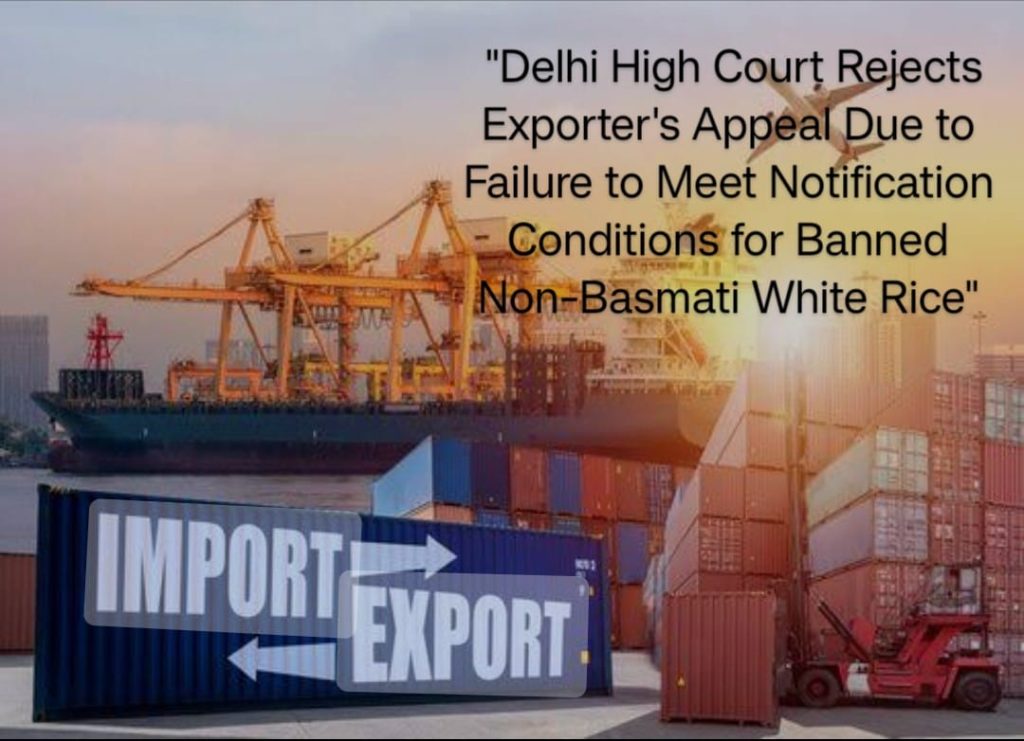The Delhi High Court quashed the criminal proceedings arising out of matrimonial differences in light of amicable settlement between the parties.
Case Title: VIPUL MEHTA AND ANR. Versus THE STATE NCT OF DELHI & ANR
Case No: CRL.M.C. 3771/2024
Decided on: 10th May , 2024
Quorum: HON’BLE JUSTICE Mr. ANOOP KUMAR MENDIRATTA
Facts of the case
In the document, a case involving applications to quash FIRs pertaining to marriage problems is discussed. The court took into account the nature of the offenses, the impact on society, and the settlement reached between the parties. Even with a settlement, serious crimes like rape, murder, and dacoity cannot be erased. On the other hand, infractions that involve a civil dispute or small events in which the victim receives compensation can be eligible for quashing. The court also assesses whether there is sufficient evidence to convict the accused party and whether there is little chance of a compromise. Because the parties in this case reached a friendly settlement, the court decided to quash the FIRs.
Issues
1. Whether aspects of the parties’ settlement are taken into account by the court while determining whether to dismiss criminal charges?
Legal Provisions
Section 482 of the Code of Criminal Procedure, 1973 (CrPC) is a provision that safeguards the inherent powers of the High Courts in India. It states:
“Nothing in this Code shall be deemed to limit or affect the inherent powers of the High Court to make such orders as may be necessary to give effect to any order under this Code, or to prevent abuse of the process of any Court or otherwise to secure the ends of justice.”
Appellant’s Contentions
The appellant argues that a variety of case-specific considerations determine whether criminal proceedings may be quashed in light of a settlement reached between the parties. Even In cases when a settlement is reached, serious crimes like murder, rape, and dacoity are typically not overturned. On the other hand, offenses pertaining to civil disputes or small instances in which the victim receives compensation can be subject to quashing. The evidence for the alleged offense is evaluated by the court, together with the possibility that the conviction is unlikely because of a settlement reached by the parties. Because the parties in this case reached a friendly settlement, the court decided to quash the FIRs.
Respondent’s Contentions
The respondent admits that every situation is different when it comes to whether or not to dismiss criminal charges in light of an agreement between the parties. Even after a settlement, serious crimes like murder, rape, and dacoity are usually not overturned. On the other hand, offenses pertaining to civil disputes or small instances in which the victim receives compensation can be subject to quashing. The evidence for the alleged offense is also assessed by the court, as is the possibility that the conviction will be slim because of a settlement reached by the parties. The responder in this particular instance affirms that all disagreements have been.
Court Analysis and Judgement
This document is a ruling from a court in which two distinct petitions under Section 482 of the Code of Criminal Procedure were brought in an attempt to void marriage-related police reports. The court took into account the nature of the offenses, the impact on society, and the settlement reached between the parties. Even after a settlement, serious crimes like murder and rape cannot be undone, but small occurrences or crimes involving a civil dispute can. Since the issue was handled peacefully, the court opted not to impose costs but instead to dismiss the FIRs and order the petitioners to plant trees as a symbolic gesture. The ruling puts a stop to the procedures and fosters harmony.
“PRIME LEGAL is a full-service law firm that has won a National Award and has more than 20 years of experience in an array of sectors and practice areas. Prime legal fall into a category of best law firm, best lawyer, best family lawyer, best divorce lawyer, best divorce law firm, best criminal lawyer, best criminal law firm, best consumer lawyer, best civil lawyer.”
Judgement Analysis Written by – K.Immey Grace





